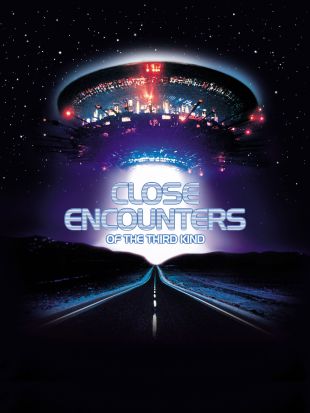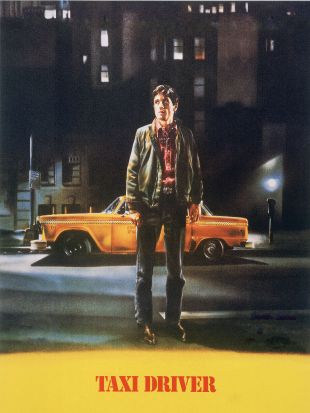Though she became more famous for her scathing Hollywood memoir than her filmmaking, Julia Phillips was still responsible, with producing partner and erstwhile husband Michael Phillips, for shepherding several '70s Hollywood signature films. Despite her '80s downfall, Phillips could never lose claim to another key achievement: to be the first woman to win a Best Picture Oscar.
Born in New York City and raised in Brooklyn, Long Island, and Milwaukee, Phillips was determined not to settle for housewife-dom. After graduating from Mount Holyoke College with several creative writing prizes to her credit, Phillips moved to New York City and entered publishing with a job at McCall's. Though she married Michael Phillips that same year, Phillips continued to forge ahead, working at the Ladies' Home Journal before falling into the movie business with a story editor job at Paramount's New York office. After soon-to-be infamous movie power broker David Begelman hired her to be a creative executive for the nascent actor-driven company First Artists, Phillips' career took off. Counting Robert Redford among her friends and charged with finding potential projects for Barbra Streisand (Phillips got her the rights for Yentl [1983] in 1969), Phillips was already keyed into the new Hollywood order before she met actor/producer Tony Bill in 1969. After Bill showed her two fledgling projects written by film school grad David S. Ward, Steelyard Blues (1973) and The Sting (1973), Phillips and her husband partnered with Bill to produce them.
Relocating to Los Angeles in 1970, the Phillips' beach home became a nexus for the ambitious, youthful group of filmmakers that became synonymous with the Hollywood New Wave, including Martin Scorsese, Steven Spielberg, and Paul Schrader. Steelyard Blues, an antiestablishment caper starring Donald Sutherland and Jane Fonda, was consonant with young Hollywood's counterculture attitude, but it was the polished retro stylings of The Sting that brought the Phillipses glory. Directed and acted with 1930s-esque flair by George Roy Hill, Robert Redford, and Paul Newman, The Sting became a lighthearted blockbuster hit and earned seven Oscars, including Phillips' unprecedented Best Picture statuette. Though the Phillipses split with Bill during The Sting's production and the Phillipses themselves separated several months after the Oscars, the ex-couple maintained their business partnership to produce two films originating from their beach house coterie. Scorsese and Schrader's Taxi Driver (1976) became a classic melding of art film interiority and cinephilia with Vietnam-era paranoia and brutal violence, centering on Robert De Niro's quintessential alienated loner Travis Bickle and Jodie Foster's pre-teen hooker Iris. Winner of the Palme D'Or at Cannes and a critically lauded hit, Taxi Driver also earned Phillips her second Best Picture Oscar nomination. As one of the driving forces behind Spielberg's science fiction fable Close Encounters of the Third Kind (1977), Phillips marked another creative peak, but the film also became her professional undoing. Though Close Encounters' blockbuster success vindicated both her confidence in Spielberg's optimistic sky-gazing story and her efforts to accommodate Spielberg and effects master Douglas Trumbull's increasingly expensive extraterrestrial vision, Phillips was shut out of her position of authority and a share of ancillary profits before the film's release by Spielberg, her ex-husband, and the studio.
Already addicted to drugs, Phillips almost lost custody of her daughter and nearly disappeared into a vortex of freebase cocaine in the late '70s. After kicking the financially ruinous habit by the early '80s, Phillips tried to revive her career. Her tastes and reputation at odds with Reagan-era Hollywood, Phillips struggled through fruitless development deals (including an adaptation of Anne Rice's novel The Vampire Lestat) with only producer credits on the ill-conceived sequel 2010 (1984) and little-seen New York music drama The Beat (1987) to show for it. Broke by the late '80s, Phillips put all of her experiences and her fury to profitable use, and published her scorching, appropriately titled bestseller You'll Never Eat Lunch in This Town Again in 1991. Thanking "the eighties moguls who made me so mad, I just had to tell the tale," Phillips spared no one, including herself, mordantly detailing all of the venality, drugs, and personal flaws that she encountered in her Hollywood odyssey. Her writing career, however, faltered with Driving Under the Affluence (1995) and a co-writing stint on Internet gadfly Matt Drudge's Drudge Manifesto (2000). Maintaining her pugnacity to the end, Phillips was working on an adaptation of Lunch for Showtime before she died of cancer on January 1, 2002, in West Hollywood.


